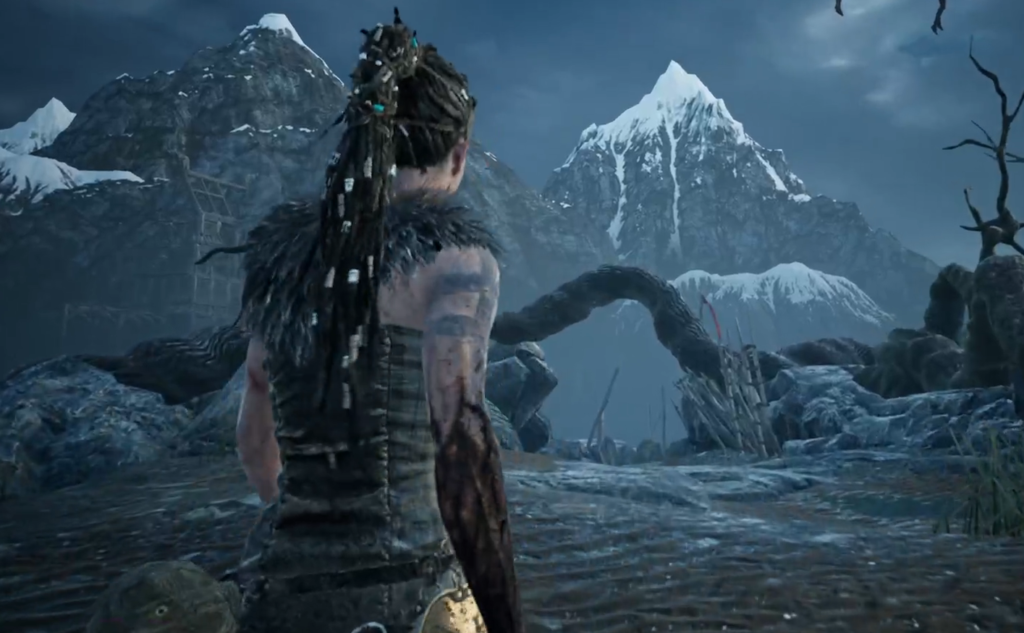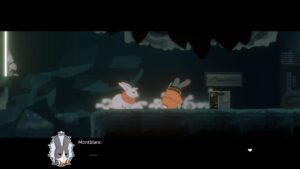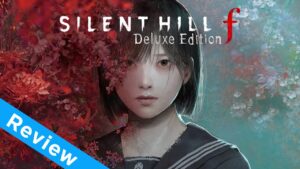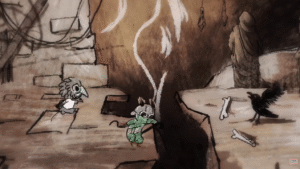I played Hellblade Senua’s Sacrifice in 2025. Here is my review

A dark adventure that will take you into the abyss of a troubled soul.

Hellblade: Senuas Sacrifice is the ninth title of Ninja Theory, a BAFTA Award-Winning British studio from Cambridge, known for previous titles like Bleeding Edge and Devil may Cry.
The game was released in 2017 with a sequel, Senua’s Saga: Hellblade II in 2024.
The story is about Senua, a young Celtic warrior who suffers from psychosis, a mental disease for which the game shows a warning at the very start. If you experience mental health issues, this may not be a suitable game for you.
Senua’s Sacrifice will take you to a dark Scandinavian land where our heroine, a troubled young soul goes on a journey to save her beloved one.
The story
You were gone from your village and on your return you found your partner dead. You want to bring him back to life and your only hope is to go through the hell of the Nordic lands. Hela, the ruler of the Underworld, may have the power to help you, but it won’t be easy to confront her.
You start the game alone, inside a small crafted boat, amidst calm but unwelcoming waters somewhere in Scandinavia with remains of war, dead bodies hanging from sticks, and abandoned Viking longboats at the banks of the lake you are traveling in.
It’s quiet and you are focusing on your row. But the voices begin. They taunt you? No, they encourage you. Or both? You try to ignore them, but they persist.

After a while, you arrive on land. It’s calm but not serene. There is death and despair.
Be wary. Your journey will be full of trials. You need to open many doors, and every door has its own test to pass.
The premise of the game
The game’s opening credits serve as an introduction cutscene, encouraging the player to use headphones to experience the game in its full capacity, meaning the whispers in Senua’s head, whispers that become voices, that become whispers again.
These voices torment you but they also encourage you. Consider the encouragements a hint from the game. You will hear them say “Watch out” alerting you that something is behind you, or “Focus” to help you use a certain game mechanic.
Since this is a title with no visual aids, no HUD (heads-up display), no mini maps, health bar, or quest log, the voices will be your only guidance.
The game, with a third-person point of view, is linear and it does a great job showing you where to go by highlighting your path using environment lighting, visual lines, or coloured marks on the ground.
No enemies are popping out from the woods or behind the rocks. There are no jumbscares, but rather a constant psychological burden, haunting your every move.

You will find yourself alone in Nordic forests and abandoned villages with the gods challenging you, giving you riddles to solve before you can proceed.
You will meet the gods of Fire and Illusion and they will not be easy to defeat. You must use your surroundings to decipher their illusions and discover their secrets, which often translate to a set of runes, hidden in elements around you. The environment is your ally and you need to be observant to find the camouflaged clues.
You must use your mind and focus to defeat the gods.
Once a level is cleared, expect a fight.

Be prepared. Enemies will attack you at designated moments. Think of it as a combination of mini-bosses with a final boss at the end.
Game mechanics
The game will not make it easy for you. Remember, after all, you suffer from psychosis. There is no quick save or load. Only checkpoints and if you die, you “damage” yourself permanently.
The game is informing you of a rot that is plaguing you. Every time you die a black matter creeps your arm, starting from your fingers, towards your head, as if your veins are full of black blood. With every death the black veins expand, and the rot crawls higher, threatening you with losing all the progress once it reaches your head. The threat of a permadeath is real and remember, there is no save option.

But you can continue your path. You are not dead yet. You will get stronger and stronger, as you fight your inner demons on your way to your final destination. Just don’t let the rot consume you.
This is your journey together with Senua.
A masterfully crafted story that represents with respect and accuracy what it is like to suffer from a mental disease, in an era where people were misunderstood and deemed cursed.
Ninja Theory showed us how a great narrative and smartly designed audio and graphics can offer a complete video game experience, without needing any metrics to assist the player. All the information we needed was there.
I did experience an occasional glitch here and there, but nothing that would discourage me from playing or recommending this title.
If you like dark-themed games, build in Celtic or Nordic environments then you will love playing this game.












